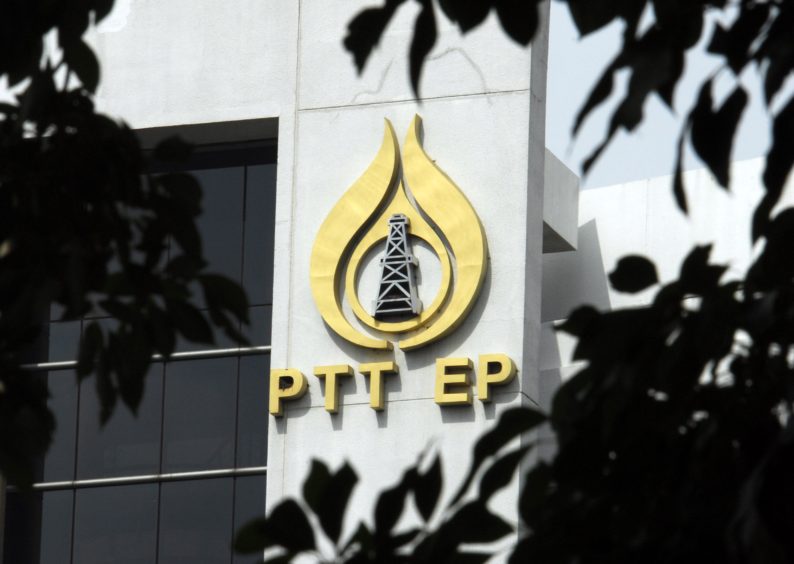
Thailand’s oil giant, whose sales account for about 10% of the nation’s economic output, is suddenly spending billions of dollars on electric-vehicle and renewable-energy companies and tilting its traditional businesses toward chemicals and plastics.
PTT announced investments of almost $10 billion since May to build an EV business and snap up petrochemical assets in Europe and renewable-energy projects in Asia. And the group isn’t done yet.
“The company must transform its strategy and vision for sustainable growth with an increased environmental awareness,” said Arawadee Photisaro, PTT’s senior executive vice president for corporate strategy. “Climate change will force more urgent policies and measures for the reduction of greenhouse gas emissions, which will hurt demand for fossil fuels.”
Tasked with tackling the global oil shortage in the 1970s, state-controlled PTT reigned as Thailand’s biggest company for decades. Now, it’s chasing renewable-energy assets in India and Vietnam and electricity generation in Europe, to add to $7.7 billion of investments announced in July by its chemical, power and refining units. They followed an offer in May of as much as $2 billion for a Thai EV partnership, PTT’s first major investment in the industry.
It’s the first time the downstream businesses have made major acquisitions overseas and the total so far in 2021 already exceeds the group’s record for international purchases in a year, according to data compiled by Bloomberg. Previously, PTT’s major foreign spending was through PTT Exploration & Production (PPTEP), which built up stakes in oil and gas fields stretching from Canada to Mozambique and Australia.
Global Footprint
More acquisitions in “future and clean energy” are coming, both in Thailand and abroad, including in renewables, energy storage, power trading and EVs, Arawadee said.
PTT and its units are joining the ranks of major global oil companies including Royal Dutch Shell Plc, TotalEnergies and Eni SpA that are ramping up investment in clean energy as investor pressure mounts to ditch traditional fossil-fuel businesses. The European Union and the US have set 2050 as the date by which they must be carbon neutral, while President Joe Biden set a goal for half of all cars sold in the US to be battery-electric, plug-in hybrid or fuel cell-powered by 2030.
“There is a change in the group’s growth appetite,” said Pauline Tang, an associate director at S&P Global Ratings in Singapore. Diversifying into overseas downstream petrochemical products and renewable energy will insulate the company from the volatility in oil prices and demand over the next decade, she said.
In the July acquisition splurge, power unit Global Power Synergy Pcl revealed investments totalling about $950 million in a renewable energy company in India and a wind power project in Taiwan; refiner Thai Oil Pcl said it will buy a $1.18 billion stake in Indonesia’s PT Chandra Asri Petrochemical; and PTT Global Chemical Pcl said it would acquire European specialty chemical maker Allnex Holding GmbH for $4.75 billion.
Plastics Future
Recyclable plastics are seen as one way oil refiners can continue to make money from petrochemicals and PTT Global agreed in 2019 to set up a joint venture in Thailand with a manufacturer of recyclable plastic resins. On Wednesday, PTT announced a 56% jump in second-quarter sales from a year earlier, partly thanks to higher petrochemical prices.
As a state-owned enterprise, the group is influenced by the Thai government’s bio-circular-green economic model, which involves producing renewable biological resources, reusing and recycling, and balancing economic and environmental needs.
“Clean energy investments are unlikely to generate any great returns, but PTT needs to follow this global trend,” said Naphat Chantaraserekul, an analyst at Krungsri Securities Pcl in Bangkok. “Investors’ big concern is PTT’s poor track record in foreign countries, from oil sands in Canada, a palm plantation in Indonesia and an oil field in Australia.”
While the sharp uptick in investments may pressure PTT’s balance-sheet liquidity in 2021, PTT’s strong cash position and good access to capital markets would help it financing the acquisitions, according to Bloomberg Intelligence analysts Mary Ellen Olson and Sheenu Gupta.
Even as the group expands earnings outside the oil industry, PTT Exploration & Production (PTTEP) will still pursue overseas acquisitions, Senior Vice President Orachon Ouiyamapun told investors earlier this month. According to a presentation to investors, half of the $28 billion capital expenditure committed for 2021-25 will go to the oil and gas production unit.
As recently as February, PTT Exploration announced the purchase of 20% stake in an Omani gas block from BP Plc for $2.6 billion. Last December, it secured a license to explore off the coast of Abu Dhabi in neighbouring United Arab Emirates.
Recommended for you
